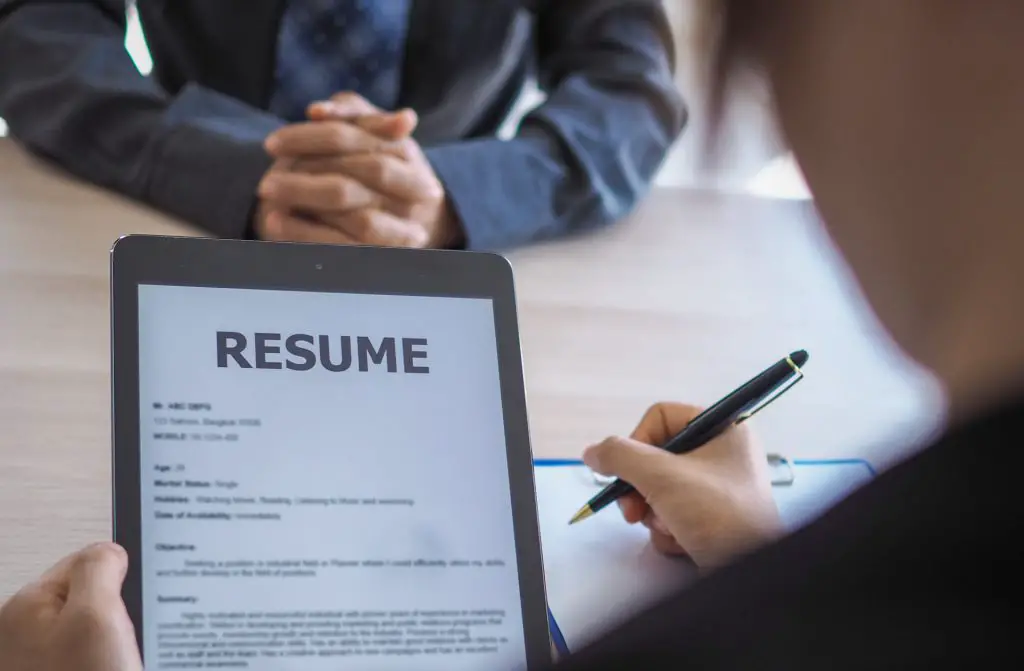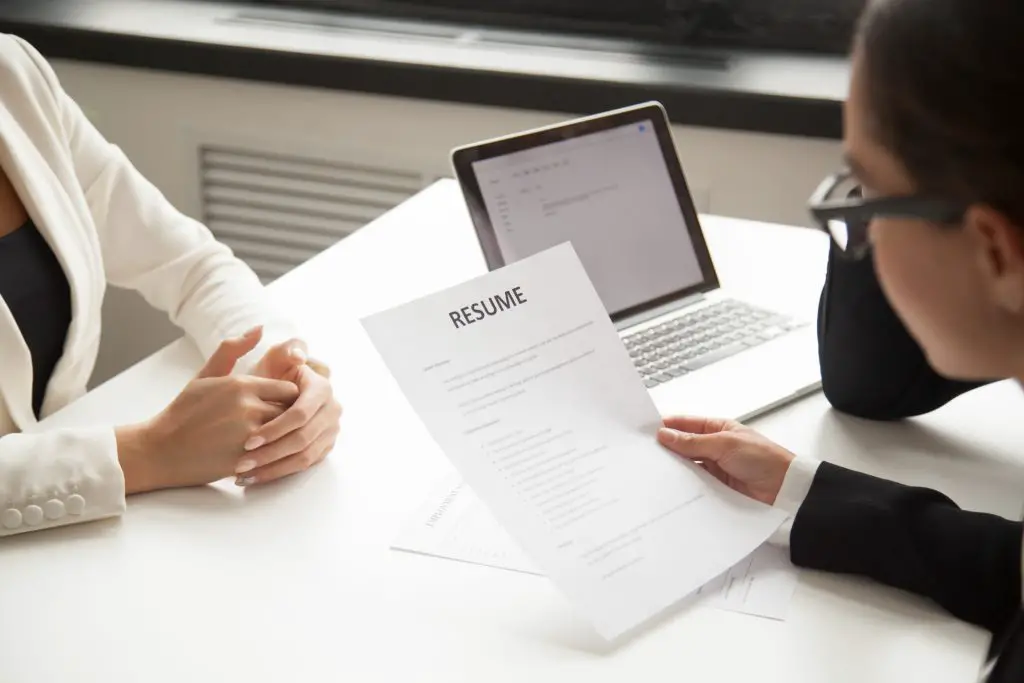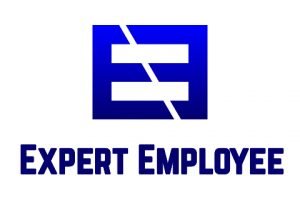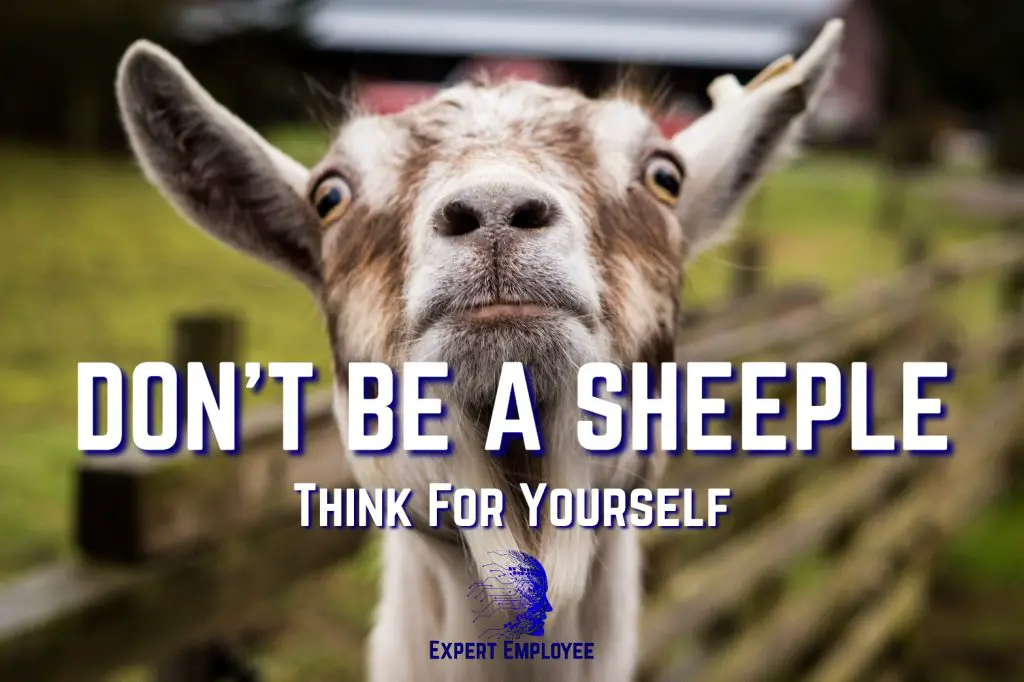This post contains affiliate links.
For major career moves it is important to have someone who will vouch for your abilities. When another leader in the company goes to your boss and says “Expert Employee was key to our success on this item” it carries much more weight than when the same information comes from you directly. The same concept applies when you are building towards a promotion, changing roles, and even more so in your job search.

What Are Employment References?
In the US, references are typically a list of coworkers and supervisors from your current or former employers who can describe your skills and qualifications. The candidate provides the name, job title, relationship, and contact information and the potential employer may contact the references provided as part of their screening during the hiring process.
However, in academic circles as well as other countries, a letter of recommendation is more commonly used (also called a reference letter) . The reference will describe their relationship with the candidate as well as their opinion about their character, skills, and performance results. The letter is self-contained and typically no further contact is needed between the hiring company and the reference themselves.
Why References Are Important
Hiring managers want to understand your previous work habits and performance that is not easily obtained from an interview setting. How you interact with coworkers is just as important as the results you achieve. When an employer contacts your reference they have the opportunity to ask a variety of questions and statements made by your reference may prompt them to go deeper for more details.
Your boss and coworkers understand your habits and how you work on a daily basis. Your references can give your experience credibility and prove your work ethic. The right references are an invaluable part of helping you get the next job that you want, but only if you prepare them the right way.
Do Employers Actually Check References?
Most employers do not actually check references, and if they do it is one of the final steps of the screening process. Checking references is time-consuming and offers limited value for entry-level positions where employers expect high turnover. However, you still need to be prepared and provide references when possible.
It may seem counterintuitive, but even when employers have no intention of checking references they may still want to see references on applications. The employer may think that applications without references are low quality and configure their applicant tracking system (ATS) to filter them out, even if the field was optional.
Expert Tip: We covered the reference check process in more detail in How Companies Hire Employees: The Hiring Process Step by Step. Learn exactly what happens from job posting all the way to hiring decision.
What Employers Can Disclose About You
Contrary to popular opinion, there are no federal laws that limit the information a former employer can provide, but State laws may apply.
In order to avoid lawsuits for defamation and/or discrimination, many large employers have a “no reference” policy that prohibits providing references for former employees except for very basic factual information like your dates of employment and job title at separation. Some companies will also provide your salary and if you are eligible for rehire.
Expert Tip: Most employers prefer to keep their employees in the dark, but you don’t have to be a sheeple. Expert Employees can get access to review their personnel file – read our detailed guide with info for all 50 states.
How To Select The Right References
Selecting the right references is critically important. Companies make their hiring decisions after speaking to you (the candidate) and the references you provide. Nobody else will be consulted unless a member of the hiring team has a shared connection in their network.
Choose References That Are Well Spoken
If you have multiple options to choose from always select references that are well spoken. Your reference acts as your representative and you want them to make a good impression with the hiring team when contacted. You want them to be credible and provide good examples of your accomplishments and work style.

References that stumble over their words or are uncomfortable speaking to people on the phone can do more harm than good. Even a neutral reference experience works against you because your new employer wasted their time for no gain.
Use References That Offer Different Perspectives
Having multiple references is necessary, but you need them to provide new information when they are contacted. If all of your reference are current or former coworkers then they will provide similar statements about you. Instead, target a mix of relationships to give a full picture of you as an employee.
If you are a student, don’t ask 5 professors to be references for you. Instead target a mix of one professor, one work supervisor, one athletic coach, one volunteer coordinator and one coworker or peer. Each one will have different insights into how you work with other and handle challenging situations. Doing so gives your potential employer a much better understanding of your work ethic and character.
For example if you are a manager you will want a different group of references: one or two bosses, a peer from another department, one senior executive, and one member of your staff. All of them should be familiar with your work and like you as a person. Don’t just use people that respect your work, you want someone who wants to work with you again and will be convincing.
How Many References Do I Need?

Everyone should prepare at least three references, even for entry-level positions. If they ask for references, hiring companies will normally ask for three and the ATS system may filter out applications that don’t meet the minimum requirements.
As you advance in your career and apply to more senior positions you should prepare additional references. Experienced professionals should have five great references while senior executives should have between five to seven references.
List your strongest reference first because during the verification process it it is common practice to start from the top and work down. You don’t want your best reference at the bottom of your list where they may never get contactacted.
Plan on asking at least five or six people in order to get at least three solid references. Remember you want references that cover a range of your experience and that can provide different insights.
How to Ask for References
It can be intimidating, many people have anxiety about asking others to be a reference for them. What if they say no? What if they don’t think I will do well at the job?
In fact, everyone you will be asking has had the same thoughts when they were doing their own job search and will be sympathetic. Remember you are not asking your sworn enemy for help – you are asking people that you had a good relationship with and were helpful previously. Most people want to help others succeed and are more than happy to be a reference for you.

Ask For References In Person
The best way to ask is face to face if possible. You have a chance for some small talk and they will remember the connection.
Your reference will see your body language and hear your sincere tone. When you ask someone to be your reference you are asking them to do work so you need to convince them it is worth their effort.
If you can’t meet with them the second-best option is over the phone – you still get the benefit of a live conversation just without the nonverbal clues from body language.
Expert Tip: Whenever possible, always ask for references in person. It is much harder to turn someone down when they are right in front of you or on the phone. Sending a text message or email is less scary, but they are also much easier for the recipient to ignore.
Ask For References By Email or Social Media
If you don’t run into the person anymore and don’t have their phone number, you can send them a message instead.
If you are under 18 consult with your parent first before asking anyone. Adults that work with teens have codes of conduct they must follow and many restrict them from socializing outside of their normal duties. For this reason, we recommend sending a group message with your parent included. Start your message with some pleasantries and a quick reminder of who you are and how you know them, then simply be direct in your request for a reference.
What Information Should I Get From My References?
At minimum you need their name, employer and job title, their email address, and phone number. Follow our template guide to be sure you get all of their necessary information.

How to Prepare Your References
Getting people to agree to be your references may seem like the biggest challenge, but you are only halfway complete. The critical step that most people leave out is to prepare your references so you get the maximum benefit.
Before you even contact your references you need to know what they can say that will help you get hired. Why are you asking them to be a reference? Start by thinking of examples that highlight one of these characteristics that your new employer is looking for – use the job description to help you identify the most important ones.
Key Characteristics References Should Know About You
- Analytical and decision-making skills
- Ability to communicate clearly in written and verbal forms
- Dependability and punctuality
- Trustworthiness and accountability
- Motivation and initiative
- Problem solving skills and technical ability
- Leadership skills and professionalism
- Positive attitude and adaptability to change
- Character and work ethic
- Attention to detail and quality-minded work product
- Coaching and mentoring staff
- Continuously improving and works independently
Don’t just ask someone to be a reference and then leave them on their own to think of what content to share. Help steer them in the right direction and remind them of good examples. Use the opportunity to provide talking points that are most relevant to the job you want.
For example, if you are applying for a position that involves project management, remind your reference of the project that you worked on together – what were the major challenges, how you solved the problems, and what were the final results.
All of the information and details needs to match what is on your resume and what you say during the interview. One of the worst things to happen during a reference check is that they contradict one of your major accomplishments. This is another reason why exaggerating or embellishing on your resume is a bad idea – not sinks a candidate faster than getting caught in an untruth.
Keep Your References Informed About Your Job Search

Don’t let your references get caught by surprise if know an employer might be contacting them. If the job portal requires references with the initial application then keep in touch with your references about once a week with an email listing the companies and positions where you applied.
Once you get later in the screening process and the HR representative asks for references you know it is more serious. Notify each of your references with the specifics of the job posting and remind them about good topics to discuss. Most employers will notify candidates before they start contacting references, especially references that are also working at your current employer. When you know the company will be reaching out, be sure to give your references notification to expect contact.
Expert Tip: With modern technology closing the gap slightly in the spam arms race, many people screen their phone calls and numbers not in their contacts are sent directly to voicemail. Similarly the reference check email may get filtered into their spam folder. Give a polite reminder to your references to please check their voicemail and spam folder regularly.
Many companies outsource their reference checks to third party service providers. As your HR contact if the will be using a phone service to contact your reference or an email with a link to access the portal. When a company is verifying references they should leave a message with a call-back number but they may give up if they are not successful after 2-3 attempts. Similarly they may send a reminder email but ultimately it is up to your reference to provide a timely response.
Notify your references every time you reach the later stages of the hiring process. Don’t let a great opportunity slip through your fingers just because your references were unavailable. If you know ahead of time that they are going on vacation and will not be available you can substitute another person in their place – you did prepare more than the minimum number of references right?
Template for Job References
This is the “secret sauce” for references and how you can provide reference that are rarely checked but still provide all of the benefit of a great reference. Instead of just providing the contact information and then hoping that everything works out, seize the opportunity to tell your future employer what you want them to know.
| Professional Reference | Context |
|---|---|
| Name Current Title Current Company Phone Number | A summary of your working relationship and what additional information you expect this reference will provide. |
| Repeat for Reference 2 | |
| Repeat for Reference 3 |
Always be selling yourself through the entire hiring process and this method is very effective for its simplicity. Hiring managers and HR recruiters dislike checking reference for the obvious reason that it take significant time and frequently returns low-value information.
| Professional Reference | Context |
|---|---|
| Alpha Boss Senior Manager of Operations Company X 555-867-5309 alpha.boss@companyx.com | Alpha is my current manager at Company X since 2018 and mentored me as I transitioned from individual contributor into my supervisor role. Alpha will confirm my dedication and calm when dealing with difficult personnel situations. |
| Jane Coworker Accounting Supervisor Company X 310-555-2368 jane.coworker@companyx.com | Jane was my peer that co-lead the supplier cost reduction project where we saved $7M. Jane will speak to my creative problem solving skills and ability to succeed in difficult negotiations. |
| Homer Simpson Springfield VIP Mr. Plow homer.simpson@mrplow.com 636-555-3226 | Homer and I worked closely together in the snowplow business to rescue Springfield from the Blizzard of ’92. Homer will verify my superior marketing skills that enabled Plow King to corner the market. |
After reading this reference sheet most employers see no need to actually contact your references. After all, it would be foolish of you as a candidate to provide untrue information right next to the contact information of the person who can confirm or deny the facts.
LinkedIn Endorsements as References
You should include a link to your public LinkedIn profile on your resume and application. Employers will look at LinkedIn to see if it matches your resume and review the recommendations from your network. The same people you considered for job references are also excellent candidates to write recommendations on LinkedIn with the added benefit that you get to curate the content before it is displayed.
Expert Tip: Your professional network is your most valuable tools in your job search. Create a LinkedIn profile to find people in your network that are connected to the company you are targeting. Here are the 13 people to connect with on LinkedIn that help you the most.

Expert Tip: In the digital age, a significant portion of teenager’s attention is directed towards social media platforms and other online activities. Companies are waking up to the value in these areas for their younger demographics.
Creating and managing a social media following, moderating a forum, or actively participating in a focused online activity gives you credibility that is better than a reference in many ways. Instead of trusting a stranger’s opinion, the employer can see your work for themselves.
Never Put “References Available Upon Request” On Your Resume
Every employer expects that you will provide references when asked. Putting this phrase on your resume only wastes valuable space that is better used to generate interest in yourself as a candidate.
Even if you already have references prepared (which you should) you shouldn’t include them with your initial application unless required. The hiring team will let you know when they want to receive the information, usually not until after completion of the on-site interview stage.
One strategy is to have your references prepared on a separate page so that you can provide them immediate when asked. However, there is usually more benefit to email them after the interviews are complete and you can make any adjustments based on the information you learned during the interview.
Expert Tip: The hiring decision can seem complex, but it really boils down to just these four questions – make sure your references will help your potential employer answer YES to all four of them.

